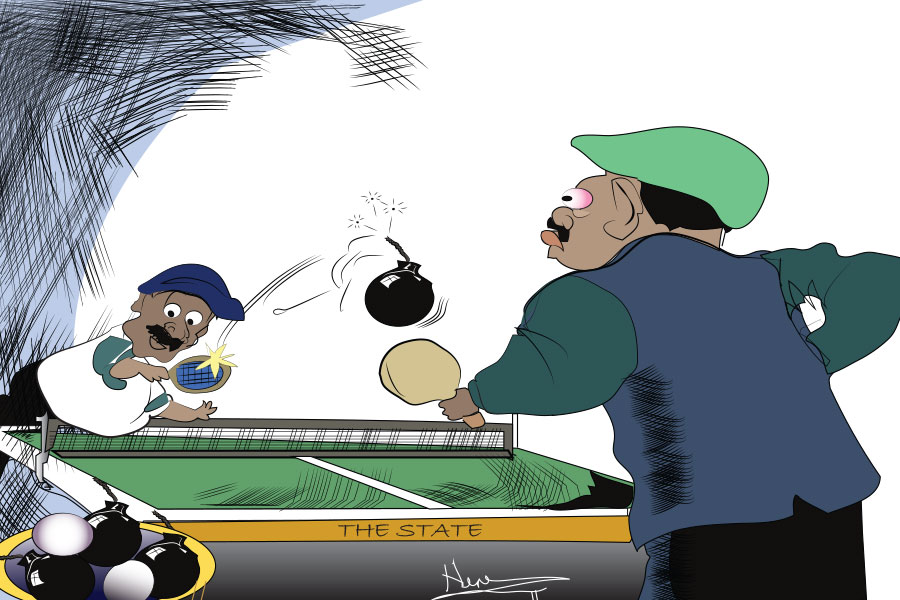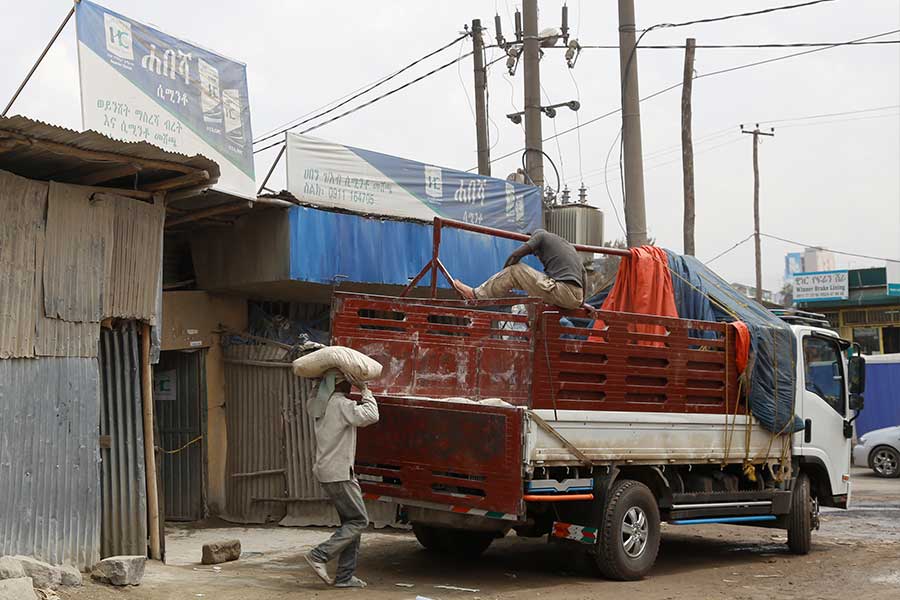
Viewpoints | Jun 07,2020
Jun 25 , 2022
By Shewangezaw Seyoum
Corruption, especially against the background of the present political instability and inflation, rubs salt into the wounds of citizen's economic wellbeing, writes Shewangezaw Seyoum (swsm02@yahoo.com), a consultant that works at the Industrial Parks Development Corporation. Views expressed here do not reflect that of the institution.
The effects of corruption, likely to be fuelled by the country's prevailing political and economic instability, on good governance and development are of concern to many. It is worrying because it can erode public trust in leaders, government, and public institutions, and harm the social contract.
Corruption in Ethiopia has not always received the attention it deserves. There was this belief that it was not as severe as in other African and low-income countries. It was also believed that corruption at home was comparatively controlled. Indeed, when international observers applied a direct cross-country comparison, Ethiopia tended to do well.
Whatever corruption existed, it was mostly relegated to petty crime often perpetrated by lower-ranking officials and employees. This missed the point. The absence of widespread grand looting usually associated with high-ranking government officials does not mean it was less corrosive. Petty corruption affects society at the most basic level, impeding citizens’ access to essential services.
Later, there was even a change in the perception of grand corruption prevalence. Cases of grand larceny have been exposed since the implementation of the Growth & Transformation Plans (GTPs), development policies of the last decade that introduced mega infrastructure and economic development projects but proceeded without adequate oversight.
Corruption has now been called out, not least by Prime Minister Abiy Ahmed (PhD), as a serious challenge the government faces. Religious leaders, auditors, judges, prosecutors, public defenders, court officials, and lawyers who are otherwise trusted in society are now suspects. Addressing the issue is therefore considered a precondition for the success of governance reform in the country.
Against this background, the present political and economic instability rubs salt into the wounds. In particular, the humanitarian situation arising from the war in the north, displacements accompanying communal violence, weather-induced drought, and raging inflation have all rendered life untenable.
Inflation is an unrelenting trend in the economy that eats up the purchasing power of the Birr, and disadvantages the fixed income group in society. In connection with this, the case of civil servants is of particular interest. Civil servants are bearing the brunt of the problem. Due to that, they are more likely to resort to corrupt practices to make up for the erosion of their real income. This may compound dissatisfaction in the civil service, which is already marred by inefficiency in service delivery. Given that state institutions are fundamental drivers of economic growth, and a high proportion of national income is spent through the state, it can also be detrimental to development.
This will be so despite over a decade of civil service reform experience that emphasised ‘results’ or ‘performance’ to improve the efficiency and effectiveness of public services and performance appraisal mechanisms for its civil servants. The move to assess outcomes and impacts through a well-designed system of ‘performance management' may not cope with the scale of the problem.
Experiences in various countries demonstrate that the inherent individualistic aspects of public management-related performance do not suit the context of countries with a collective culture such as ours. Likewise, piecemeal arrangements like the asset disclosure and electronic registration and tracking introduced by the federal corruption watchdog or the electronic tax payment mechanism recently launched by the Ministry of Revenues cannot work alone. Nor will simple persuasion cut it. That is because anticorruption awareness-raising efforts may be backfiring; instead of encouraging citizens to resist corruption, they may be nudging them to “go with the corrupt grain” due to improper messaging.
Corruption is described as an insidious plague that has a wide range of corrosive effects on society. It undermines democracy and the rule of law, leads to human rights violations, distorts markets, erodes the quality of life and encourages organised crime, terrorism and other threats to human security. A surge in corruption not only stands in the way of upholding the public interest but also undermines political and economic developments.
The fight against corruption is hence not only a moral and scholastic awakening but also a political and economic imperative whose significance is undoubtedly immense.
Ultimately, there is no way around fighting against corruption.
The approach would have to be holistic and constantly revised in the face of shifting economic and political circumstances.
Public service is regarded as the nerve centre of the machinery of government. An effective public sector is capable of spearheading socio-economic development and reducing poverty. Because civil servants are poorly paid, they may be particularly prone to taking bribes. Sometimes, the extra income can mean the difference between being able to feed one’s family or not.
Engaging in bribery, in other words, may be a survival strategy. This gets more pronounced in turbulent times such as now, where prices have skyrocketed but incomes are stagnant. In these cases, improving wages, working conditions and merit-based promotions may eliminate the need to engage in corruption.
The adequacy and effectiveness of this measure should be compared with the direct provision of some essential items like edible oil and sugar at a subsidised price that the government has so far attempted. For one, inflation is an overall increase in the price level of most goods and services, not just in one or a few.
As policymakers continue to fight to dampen the inflationary fire, and with the prospect that such efforts will be intensified, macroeconomic stability should also help. But that is only one piece. The complete set of measures would also have to include a coordinated and novel shift in governance. There is also a pressing and recognised need to address how our ideas about service, wealth and ethics are changing.
PUBLISHED ON
Jun 25,2022 [ VOL
23 , NO
1156]


Viewpoints | Jun 07,2020

Radar | Aug 28,2021

Featured | Sep 27,2025

My Opinion | Apr 17,2021

Covid-19 | Mar 28,2020

Editorial | Mar 02,2019

Commentaries | Jan 28,2023

Fortune News | Jun 14,2020

Radar | Jun 14,2020

Fortune News | Dec 01,2024

Photo Gallery | 176142 Views | May 06,2019

Photo Gallery | 166356 Views | Apr 26,2019

Photo Gallery | 156811 Views | Oct 06,2021

My Opinion | 136877 Views | Aug 14,2021

Dec 22 , 2024 . By TIZITA SHEWAFERAW
Charged with transforming colossal state-owned enterprises into modern and competitiv...

Aug 18 , 2024 . By AKSAH ITALO
Although predictable Yonas Zerihun's job in the ride-hailing service is not immune to...

Jul 28 , 2024 . By TIZITA SHEWAFERAW
Unhabitual, perhaps too many, Samuel Gebreyohannes, 38, used to occasionally enjoy a couple of beers at breakfast. However, he recently swit...

Jul 13 , 2024 . By AKSAH ITALO
Investors who rely on tractors, trucks, and field vehicles for commuting, transporting commodities, and f...